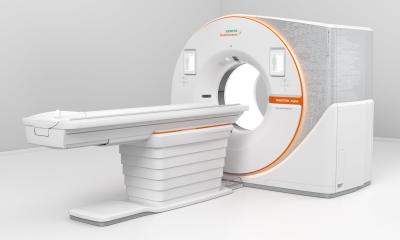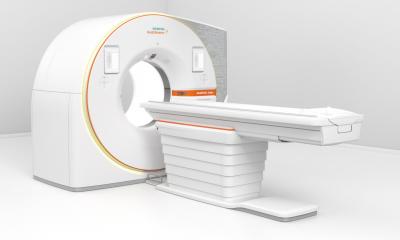Fast triage of chest pain patients
ADVIA Centaur High-Sensitivity Troponin I Assay
The ADVIA Centaur® High-Sensitivity Troponin I (TNIH) assay* is the latest addition to Siemens Healthineers’ comprehensive cardiac menu to assist clinicians with the diagnosis and treatment of chest pain patients. Designed to aid in diagnosing acute myocardial infarctions (AMI) through the quantitative measurement of cardiac troponin I in serum or plasma, high-sensitivity troponin plays a critical role in the timely diagnosis of AMI, or heart attacks.


The ADVIA Centaur® High-Sensitivity Troponin I (TNIH) assay* is the latest addition to Siemens Healthineers’ comprehensive cardiac menu to assist clinicians with the diagnosis and treatment of chest pain patients. Designed to aid in diagnosing acute myocardial infarctions (AMI) through the quantitative measurement of cardiac troponin I in serum or plasma, high-sensitivity troponin plays a critical role in the timely diagnosis of AMI, or heart attacks.
The ADVIA Centaur® High-Sensitivity Troponin I assay is a true high-sensitivity assay:
- Offers improved cardiac patient care with a high-sensitivity troponin assay that meets current European Society of Cardiology clinical guidelines
- Provides fast, accurate and actionable test results allow clinicians to confidently rule in/rule out a myocardial infarction when triaging patients with chest pain
- Ensures reliable results from a proven, trusted technology coupled with three new monoclonal antibodies
Compared to traditional troponin assays, the Siemens Healthineers ADVIA Centaur TNIH assay is able to detect lower levels of troponin and smaller changes to a patient’s troponin levels, which may be an early indication of AMI. This design affords clinicians greater confidence in patient results at the low end of the assay range by delivering precision that provides the ability to measure slight, yet critical, changes between serial troponin I values.
Precision at the low end is important to minimize analytic variation that could confuse a clinician’s assessment of a clinically significant change. With this data in hand, clinicians have the ability to more quickly diagnose and treat patients with suspected AMI, in some cases in as little as one to three hours.
*Not available for sale in the U.S.
Source: Siemens Healthineers
01.07.2017





